
The G20 summit took place in Bali, Indonesia, on November 2022…

Don’t waste your time – keep track of how NFP affects the US dollar!
Data Collection Notice
We maintain a record of your data to run this website. By clicking the button, you agree to our Privacy Policy.

Beginner Forex Book
Your ultimate guide through the world of trading.
Check Your Inbox!
In our email, you will find the Forex 101 book. Just tap the button to get it!
Risk warning: ᏟᖴᎠs are complex instruments and come with a high risk of losing money rapidly due to leverage.
68.53% of retail investor accounts lose money when trading ᏟᖴᎠs with this provider.
You should consider whether you understand how ᏟᖴᎠs work and whether you can afford to take the high risk of losing your money.
Information is not investment advice
What is tapering?
Tapering is the reduction of the rate at which a central bank buys new assets. It is mostly used when talking about the reversal of quantitative easing (QE) policies and is regarded as the first step in winding down from a period of monetary stimulus. Tapering is just another tool used by central banks to control interest rates and the perception of future rates.
Tapering impacts interest rates almost immediately. QE policies lower the interest rate, so when the purchasing program is reduced, interest rates will rise again.
Tapering leads to deflation, pulling money out of the system and making the cost of living more affordable but increases unemployment.
Tapering often leads to fears that liquidity would decline since investors await the global market's upcoming collapse.
In the long term, banks benefit from the rate hike through the higher net interest income on loans and borrowings.
On the other hand, in short term, high inflation leads to a decrease in real incomes of the population and a decrease in demand for loans and borrowings, which is the main income for banks.
Another reason why the banking sector may suffer is a decrease in market liquidity. If people make fewer operations on financial markets, banks will get less income from their investment and brokerage directions.
JPM, daily chart
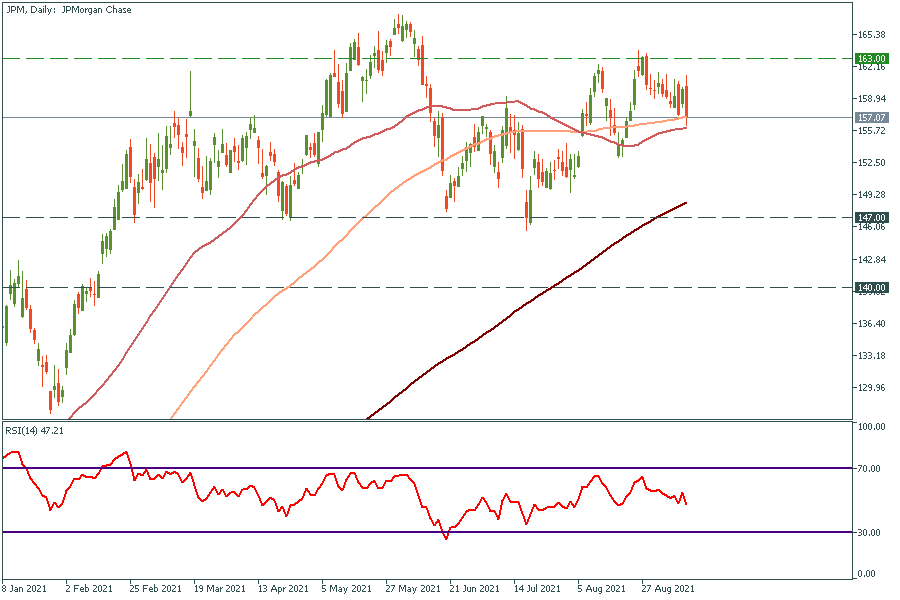
JPM dropped to its 100 daily moving average. We expect this downtrend to continue right after this support line will be broken through. Targets are $147 (the 200-day moving average) and $140 (JPM’s highest pre-pandemic price).
Citigroup, weekly chart
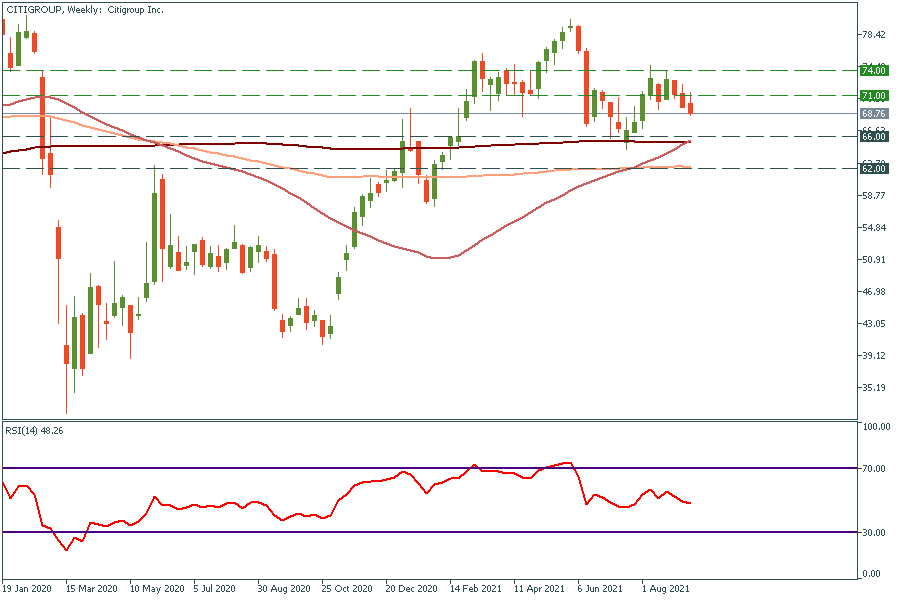
Citigroup demonstrated a worse dynamic than JP. Morgan during the period of pandemic recovery. The closest resistance level is $71, we don’t expect the price to rise higher than that level. On the contrary, we believe that in the middle term the price will reach $66 and $62, which are 200 and 100-weekly moving averages respectively.
BAC, weekly chart
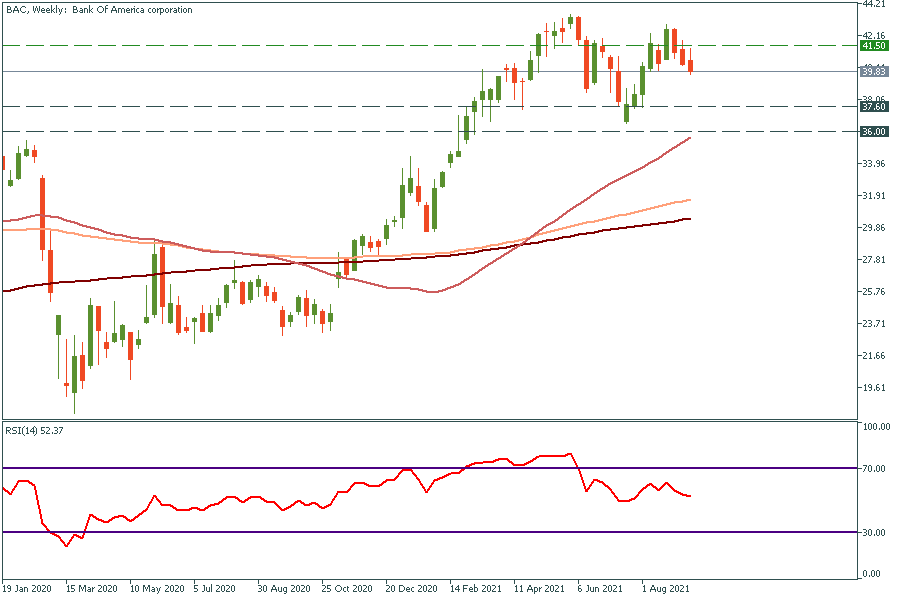
BAC’s will follow the whole sector. The price tends to reach $37.6 and $36 support levels.
GS, weekly chart
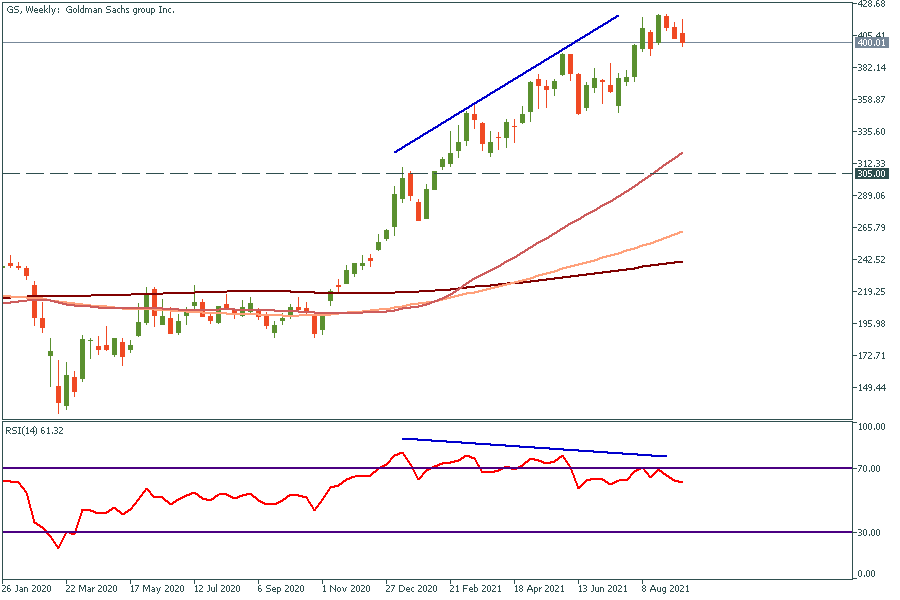
GS has a huge divergence on a weekly chart. The price will tend to play it out and head towards $305 in the middle-term period.
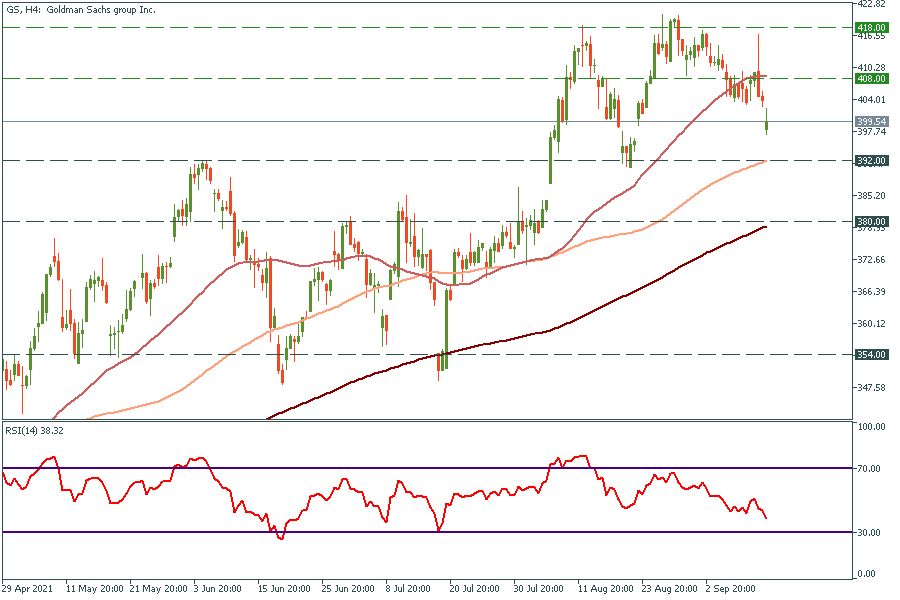
In short term, there is still a downtrend. Targets are $392, $380 and $354.

The G20 summit took place in Bali, Indonesia, on November 2022…

The deafening news shocked the whole world yesterday: the British Queen Elizabeth II died peacefully at the age of 96…

After months of pressure from the White House, Saudi Arabia relented and agreed with other OPEC+ members to increase production.

eurusd-is-falling-what-to-expect-from-the-future-price-movement
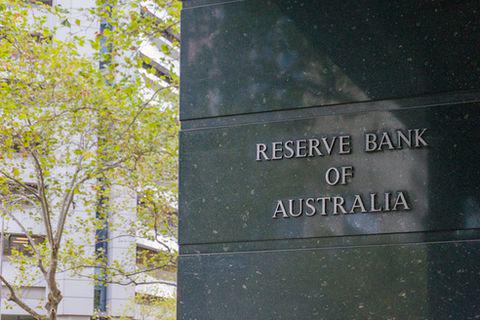
Greetings, fellow forex traders! Exciting news for those with an eye on the Australian market - the upcoming interest rate decision could be good news for Aussies looking to refinance or take out new loans. The Mortgage and Finance Association Australia CEO, Anja Pannek, has...

Hold onto your hats, folks! The Japanese yen took a nosedive after the Bank of Japan (BOJ) left its ultra-loose policy settings unchanged, including its closely watched yield curve control (YCC) policy. But wait, there's more! The BOJ also removed its forward guidance, which had previously pledged to keep interest rates at current or lower levels. So, what's the scoop? Market expectations had been subdued going into the meeting, but some were still hoping for tweaks to the forward guidance to prepare for an eventual exit from the bank's massive stimulus
Your request is accepted.
We will call you at the time interval that you chose
Next callback request for this phone number will be available in 00:30:00
If you have an urgent issue please contact us via
Live chat
Internal error. Please try again later